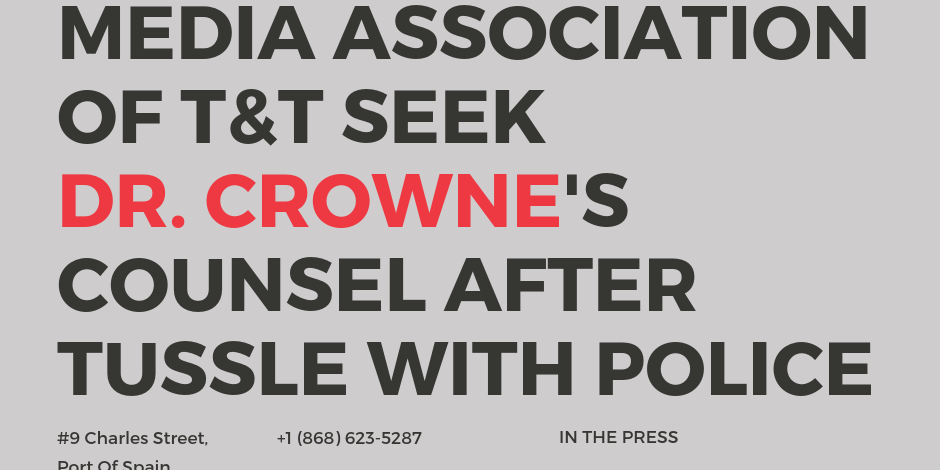The Media Association of Trinidad and Tobago (MATT) released a statement today about their meeting with Police Commissioner Gary Griffith and their legal counsel, Dr Emir Crowne, concerning the treatment of media reporters by the police.
The press release can be read below:
Executives from the Media Association of Trinidad and Tobago (MATT) met with the Commissioner of Police yesterday to discuss the Trinidad and Tobago Police Service’s (TTPS) attempt to obstruct a TV6 news crew in the performance of their duties on Tuesday, November 6. The meeting also focused on the larger issue of press freedom and the media’s ability to perform their duties without fear of intimidation or interference from the TTPS.
MATT’s legal counsel, Dr. Emir Crowne, also provided legal authority that there were generally no police powers to prohibit filming, the taking of photographs and/or digital images in public spaces, unless such activities interfered with the police in the performance of their duties.
The Commissioner apologized to MATT for the behaviour of the TTPS officers in question and has personally committed to meeting with his Divisional Commanders to remind them of the need to treat media workers with respect and the right of media personnel to cover events occurring in public spaces without hindrance.
The Commissioner also agreed that a free media is essential to the proper functioning of a democracy and does not recall any incident in which media workers obstructed the protective services from doing their jobs.
For his part the Commissioner also expressed concern about media reports that may have been carried concerning the TTPS, or himself, when no apparent attempt was made to contact him for balance.
MATT indicated that as a voluntary, professional association it cannot comment on any individual story or media house; however, it was nonetheless an established journalistic practice to seek a response from all parties involved in a matter, except where the story may be of urgency. In those situations, a response is usually sought for subsequent stories.
In the end, the public interest and the public good are at the heart of both the media’s mission and policing and for that we commend the Commissioner for a candid and conciliatory dialogue. -END-







